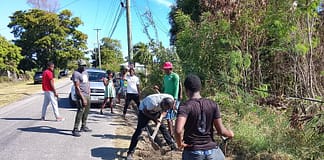
Port of Spain, Trinidad and Tobago. On Monday, 9 December 2024, the Caribbean Court of Justice (CCJ) denied the special leave application of the applicant, who sought special leave from this Court to appeal his conviction for the offence of Rape of a Child. The CCJ upheld the decision of the Court of Appeal of Belize that affirmed the conviction by the High Court.
The victim, a child under the age of sixteen years, was raped by the applicant at his corn mill. His appeal was previously dismissed at the Court of Appeal, and he subsequently applied to the CCJ on the same two grounds that he did at the lower court. The first is that the trial judge omitted a crucial discrepancy between the evidence of the victim and the doctor who examined her and secondly, that the weaknesses of the Crown’s case were not sufficiently analysed and put to the jury.
In coming to its decision in relation to the first ground, the Court examined the sufficiency of the judge’s directions and found that there was no discrepancy between the medical expert’s testimony and the judge’s directions. As it pertained to the second ground, the Court also found that the trial judge’s summation was fair and balanced to both the prosecution and the accused, given that the jury was made aware of the inconsistencies and weaknesses presented by both sides. There was no basis for considering that the Court of Appeal erred in dismissing this ground.
For an application for special leave to succeed, the applicant must show that there is a realistic possibility that a (potentially) serious miscarriage of justice may have occurred, and/or a point of law of general public importance is raised (that is genuinely disputable). The Court was persuaded that neither of these two possibilities was present in this case.
-End-
About the Caribbean Court of Justice
The Caribbean Court of Justice (CCJ) was inaugurated in Port of Spain, Republic of Trinidad and Tobago on 16 April 2005 and presently has a Bench of six judges presided over by CCJ President, the Honourable Mr Justice Adrian Saunders. The CCJ has an Original and an Appellate Jurisdiction and is effectively, therefore, two courts in one. In its Original Jurisdiction, it is an international court with exclusive jurisdiction to interpret and apply the rules set out in the Revised Treaty of Chaguaramas (RTC) and to decide disputes arising under it. The RTC established the Caribbean Community (CARICOM) and the CARICOM Single Market and Economy (CSME). In its Original Jurisdiction, the CCJ is critical to the CSME and all 12 Member States which belong to the CSME (including their citizens, businesses, and governments) can access the Court’s Original Jurisdiction to protect their rights under the RTC. In its Appellate Jurisdiction, the CCJ is the final court of appeal for criminal and civil matters for those countries in the Caribbean that alter their national Constitutions to enable the CCJ to perform that role. At present, five states access the Court in its Appellate Jurisdiction, these being Barbados, Belize, Dominica, Guyana, and Saint Lucia. However, by signing and ratifying the Agreement Establishing the Caribbean Court of Justice, Member States of the Community have demonstrated a commitment to making the CCJ their final court of appeal. The Court is the realisation of a vision of our ancestors, an expression of independence and a signal of the region’s coming of age.

Advertise with the mоѕt vіѕіtеd nеwѕ ѕіtе іn Antigua!
We offer fully customizable and flexible digital marketing packages.
Contact us at [email protected]
















